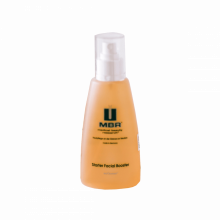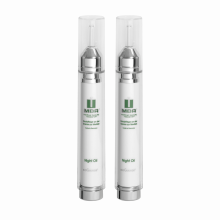Low-Level Inflammation
One of the most important defense mechanisms in the body is inflammation. It is a key to survival but at the same time appears to add to the pace of aging and the speed of the onset of degenerative diseases.
Inflammation is the immune system's primary response to irritation and infection. It would not be possible to live without inflammation as it protects the body from dangerous microorganisms. Conversely, people who suppressed inflammation capacity can easily develop fatal infections from what are usually innocuous microorganisms. Thus, inflammation is a combination of several bodily responses meant to slow down or destroy dangerous pathogens.
A variety of phenomena characterize the process of inflammation. These include the raised level of local blood flow, migration and activation of the immune cells, a release of concentrated numbers of free radicals, the destruction of healthy tissue, and the building of scar tissue.
Products with Chamomile extract soothing inflammation
In an ideal world, inflammation cleans out infection and then subsides to rebuild the normal tissue. If the infection is not cleared up, then the inflammation can become chronic and remain for weeks and possibly even years. Chronic inflammation can exist without a severe infection - this can be either because the body's inflammation mechanism has become overly sensitive or because the immune system perceives some of the body's own tissues as being foreign matter. Both forms of chronic inflammation can be associated with aging. As we get older, we often develop autoimmune conditions as well as other kinds of chronic inflammation. Older people often have low-grade inflammation and /or mild autoimmune disorders. Chronic inflammation accelerates the aging process by flooding the tissues with free radicals, which destroy normal cells. Like most processes of aging, chronic inflation is cyclical. The level of chronic inflammation increases the speed of aging, and aging raises the levels of chronic inflammation.
Many different tissues are affected by chronic inflammation. It is particularly severe in the cardiovascular and nervous systems. These are the two most vital systems for human survival. One of the key risk factors for heart disease and stroke is indeed inflammation. Inflammation is more threatening than high levels of cholesterol or homocysteine. Neurodegenerative diseases such as Alzheimer's and Parkinson's can also be attributed at least in part to inflammation.
Maintaining healthy levels of inflammation should be a key part of anyone's anti-aging plan. However, it is important to recognize that some people are more liable to chronic inflammation than others. Therefore, your initial step should be to figure out the level of inflammation in your body.
CRP levels correlate with cardiovascular risk as follows:
- Less than 1 mg/L (low risk)
- 1-3 mg/L (medium risk)
- Greater than 3 mg/L (high risk)
Neopterin, MMP-9 (matrix metalloproteinase-9), and sICAM (soluble intercellular adhesion molecules) are all inflammation markers that are known to be related to cardiovascular problems. It is not as easy to test for the markers of inflammation problems related to the nervous system as it is with the cardiovascular system. However, often if inflammation exists in one, it exists in both. There are some very specialized tests for certain immune mediators which are related to various forms of inflammation. For example, obesity can often increase IL-6, IL-8, and TNF-a, all of which are immune mediators associated with inflammation.
If you are suffering from high levels of inflammation, it is important to take the appropriate measures to lower them both for the sake of your health and your longevity. If you are over 40, it is good to take some basic steps to control inflammation, even with normal levels of inflammatory markers.
Simple ways to keep inflammation levels low include:
- Good dental hygiene. Gum infections of even a low grade of severity can hurt heart disease as well as other conditions
- Exercise. It has been shown that regular exercise can help to improve low-grade chronic inflammation. (You need to be careful if you have acute, chronic inflammation as exercise can exacerbate this condition)
- Weight loss. Being overweight has been shown to raise the level of inflammation in the body. Keeping your weight at the ideal BMI (Body Mass Index) will help to keep inflammation at healthy levels.
- Not smoking. The free radicals produced by the by-products of smoking can cause high levels of inflammation and other problems.
- Diet. What you eat has a major effect on the level of inflammation in your body. Eating low levels of Trans and saturated fats; increasing the amount of omega-3 in your diet (found in fish, fish oil, and flaxseed oil); and increasing your intake of multicolored fresh vegetables and fruit can help keep inflammation in check. An anti-inflammatory diet should also be rich in fiber and low glycemic foods. Research has shown that meat can at times be pre-inflammatory. To lower inflammation levels, it can be helpful to eat a lot of fish, beans, soy, and nuts in place of meat as protein sources.
Additional steps to maintain healthy levels of inflammation can include remedies (both natural and synthetic) that deal with the individual types of inflammation. Each remedy has its own pluses and minuses. Some examples are COX-inhibitors (e.g., aspirin), statins (e.g., Lipitor), proteases (e.g., serrapepditase, nattokinase, and bromelain), LOX-inhibitors (e.g., acetyl-boswellic acid), and others. Unfortunately, at this time, none of these have been proved to act as effective anti-aging or life-extending solutions.



